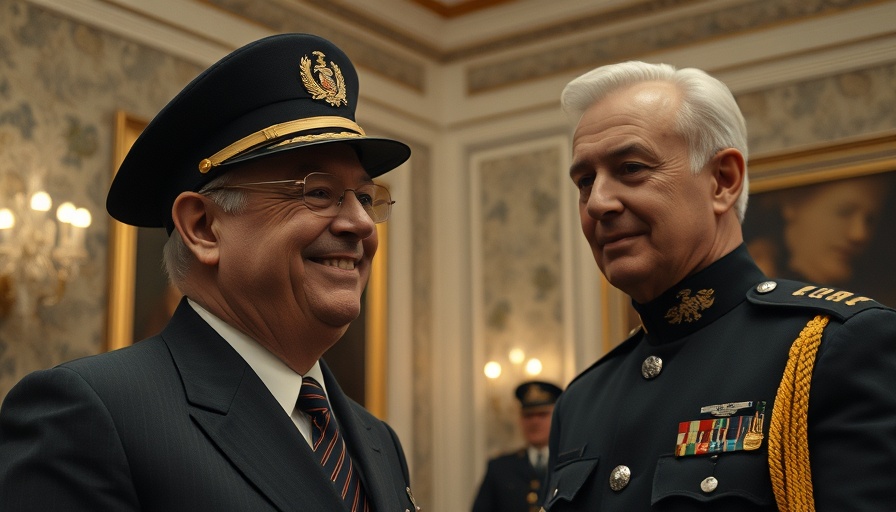
Putin's Tough Stance on Ukraine Ceasefire: What It Means
Russian President Vladimir Putin has responded to a proposed 30-day ceasefire in Ukraine with a set of stringent conditions that cast doubt on the potential for peace negotiations. This followed a plan agreed upon earlier by Ukraine after discussions with the United States, a crucial ally in the region. In his announcement, Putin characterized the idea as fundamentally correct but emphasized that several critical issues must be addressed before any formal agreements can be reached.
Echoing Concerns Over Military Strategy
Putin openly questioned the intentions behind the ceasefire, suggesting that it could merely allow Ukraine the necessary time to mobilize or rearm its forces. Thus, the underlying question of trust looms large: “How can we ensure that the ceasefire does not become a tactical maneuver by Ukraine?” This sentiment reflects a broader concern among military strategists regarding the effectiveness of ceasefire agreements in conflict zones.
Ukraine's Reaction: A Call for Sanctions
In stark contrast, Ukrainian President Volodymyr Zelensky described Putin's response as manipulative, advocating for expanded sanctions against Russia. His statements highlight the growing urgency for Ukraine to bolster not just military capabilities but also diplomatic pressure on international allies to enforce penalties against Russia's economic sectors, particularly oil and gas, which remain pivotal to the Kremlin's war funding.
The Stakes of Ending the Conflict
As the conflict enters a more precarious phase, the prospect of a ceasefire presents both an opportunity and a dilemma. Ukrainian officials and many Western analysts argue that any pause in hostilities must result in meaningful discussions regarding territorial sovereignty and future security arrangements. The lines drawn around regions like Kursk and Crimea are tightly contested, and Putin's emphasis on negotiating fundamental issues complicates the prospect of settled peace.
US Involvement and Global Implications
The American response has been critical. President Donald Trump expressed a desire for swift negotiations, advocating that Russia “do the right thing.” Yet, he also acknowledged the complexity behind achieving a mutually acceptable ceasefire. The implications extend beyond Ukraine's borders, as rising tensions and unclear commitments threaten to reshape global alliances and security dynamics, particularly in light of NATO's involvement.
Path Forward: What Do We Expect?
With fears of the war intensifying, the window for diplomacy could be closing. Both sides appear wary of making concessions and have expressed diverging views on the ceasefire's requirements. Furthermore, the prospect of ignoring Ukraine's NATO ambitions remains a thorny issue, particularly as tensions with Western powers escalate. Analysts suggest that this negotiation is not merely about stopping the fighting but about structuring a new reality in Eastern Europe that balances power in favor of the Kremlin.
Conclusion: The Ongoing Struggle for Peace
The complex narrative surrounding the conflict in Ukraine underscores the delicate balance of power and the challenges of achieving lasting peace. As the world watches closely, the recent developments could serve as a critical juncture for either reconciliation or extended hostilities. Understanding these dynamics is not just important for regional stakeholders but for global security and economic stability as well.
 Add Row
Add Row  Add
Add 



Write A Comment